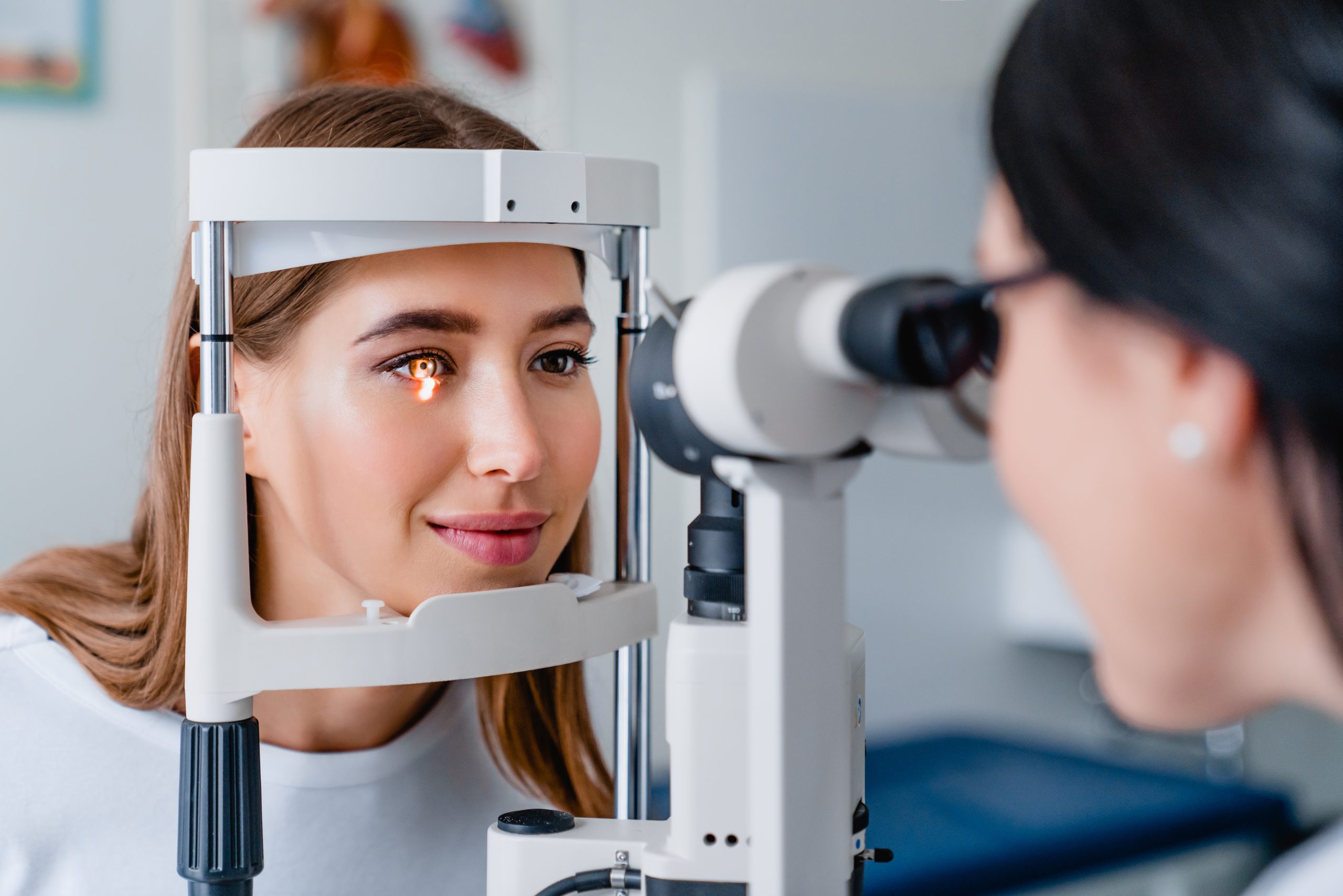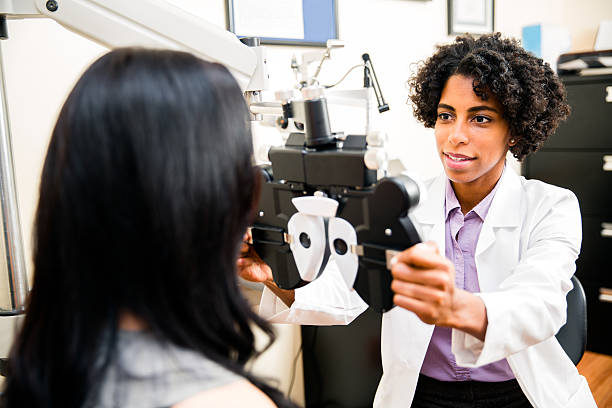Optometrist Montgomery: Top Quality Eye Care and Vision Solutions
Optometrist Montgomery: Top Quality Eye Care and Vision Solutions
Blog Article
The Value of Regular Eye Exams: Insights From a Skilled Ophthalmologist
Normal eye tests serve as an important component of medical care that extends beyond simple vision modification. A seasoned eye medical professional can give insights right into just how these evaluations not just identify common eye conditions but likewise expose underlying health problems that may or else go undetected.
Benefits of Normal Eye Examinations
Although many people may overlook the significance of normal eye tests, these assessments play an important role in maintaining overall health and health. Routine eye evaluations serve not only to evaluate vision however likewise to detect very early indicators of systemic wellness problems, including diabetes and hypertension. By determining these conditions at their creation, people can receive prompt interventions, significantly enhancing long-lasting end results.
Furthermore, eye exams can help in keeping track of existing health problems, making certain that any type of modifications in vision or eye health are without delay addressed (optometrist). The analyses allow for personalized suggestions relating to glasses, way of living changes, and protective actions versus potential eye stress or damages
Beyond physical health and wellness, the benefits of normal eye exams reach improving lifestyle. Improved vision helps with better performance in day-to-day activities, from reading to driving, thus adding to higher self-reliance and safety. Ultimately, prioritizing eye tests fosters a proactive approach to wellness administration, empowering individuals to take charge of their well-being. Routine check-ups are a crucial component of a comprehensive medical care approach, guaranteeing that both vision and overall wellness are protected throughout life.
Common Eye Issues Detected
Routine eye tests are critical in spotting a range of common eye conditions that can considerably influence vision and total health and wellness. Amongst the most common problems identified throughout these evaluations are refractive errors, including nearsightedness (nearsightedness), hyperopia (farsightedness), and astigmatism. These problems frequently materialize as obscured vision and can be conveniently remedied with prescription glasses or call lenses.
In addition, cataracts, which trigger clouding of the lens, are often diagnosed in older grownups. This condition can cause reduced vision and needs surgical treatment for resolution. An additional common problem is glaucoma, a group of eye illness that harm the optic nerve, often connected to increased intraocular stress. Early detection is vital as it can stop irreversible vision loss.
Age-related macular degeneration (AMD) is an additional significant condition that impacts central vision, especially in people over 50. Finally, diabetic retinopathy, a complication of diabetes, can result in severe vision problems if not monitored routinely. Through detailed eye exams, these problems can be recognized early, permitting prompt monitoring and treatment to maintain vision and boost high quality of life.
Value of Very Early Detection
Early discovery of eye problems plays an important role in preserving vision and protecting against considerable health and wellness issues. Numerous eye illness, such as glaucoma, diabetic retinopathy, and age-related macular degeneration, can progress silently without visible symptoms in their beginning. By the time symptoms manifest, irreparable damages may have happened, resulting in irreversible vision loss.
Routine eye exams promote very early diagnosis, permitting for timely intervention and therapy. For circumstances, treating elevated intraocular pressure can stop the onset of glaucoma, while taking care of blood glucose levels can substantially reduce the threat of diabetic person retinopathy. In addition, problems like cataracts can be properly managed with medical treatment when recognized early.

Exactly How Frequently Should You Check Out?
Identifying the frequency of eye tests is vital for maintaining optimum eye health and vision. The basic suggestion for adults is to have a detailed eye examination each to 2 years, depending on specific risk elements and age. For people matured 18 to 60, an examination every two years is usually weblink adequate if no vision problems are existing. Nevertheless, those over 60 must think about yearly examinations, as the risk of age-related conditions enhances dramatically.
People with details threat aspects, such as a household history of eye disease, diabetes mellitus, or existing vision issues, may call for even more frequent examinations. Children need to have their very first eye exam at six months of age, complied with by additional tests at age three and before going into school. Regular examinations throughout childhood years are critical as vision can change quickly during developing years.
Inevitably, the frequency of sees should be tailored to each individual's scenarios, consisting of way of living, work-related threats, and any kind of pre-existing eye problems. Consulting with an eye care professional can supply customized recommendations, making sure that click to read more your eye health is frequently checked and kept.
Tips for Your Eye Examination
Getting ready for your eye exam can enhance the performance of the browse through and guarantee a comprehensive analysis of your eye wellness. To optimize your time with the eye doctor, it is essential to collect appropriate details prior to your visit. Beginning by compiling a checklist of any medicines you are currently taking, consisting of non-prescription drugs and supplements, as these can impact eye health.
In addition, record any kind of symptoms you have experienced, such as blurred vision, discomfort, or headaches. This information will help your optometrist in identifying potential issues. If you wear glasses or contact lenses, bring them along, also if you don't use them frequently. This will help the medical professional examine any kind of adjustments in your vision.
It is likewise valuable to have a household history of eye conditions available, as genetic aspects can add to your eye health and wellness. Lastly, consider scheduling your test temporarily when you are less hurried, enabling you to ask inquiries and discuss your issues completely. By preparing adequately, you guarantee that your eye examination is More Help productive which your ophthalmologist has all the necessary info to provide the finest treatment feasible.

Conclusion
Routine eye examinations play an essential function in preserving both vision and overall health and wellness. Ultimately, focusing on comprehensive eye examinations contributes considerably to the preservation of vision and the improvement of top quality of life, highlighting the requirement of regular eye care in preventative healthcare strategies.
Routine eye exams are instrumental in discovering a range of common eye conditions that can considerably influence vision and general health and wellness.Identifying the frequency of eye examinations is vital for preserving optimal eye health and wellness and vision.Preparing for your eye examination can boost the effectiveness of the browse through and ensure an extensive examination of your eye wellness (optometrist). By preparing effectively, you make certain that your eye exam is efficient and that your eye medical professional has all the essential info to offer the finest care feasible
Eventually, prioritizing detailed eye analyses contributes substantially to the preservation of vision and the improvement of top quality of life, underscoring the necessity of routine eye care in precautionary health care approaches.
Report this page